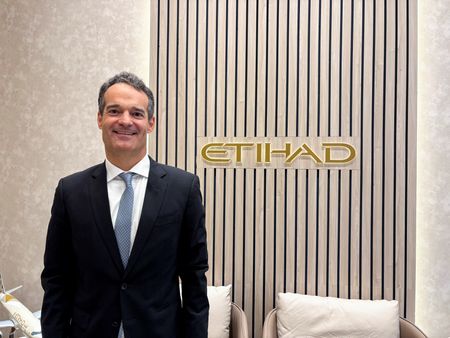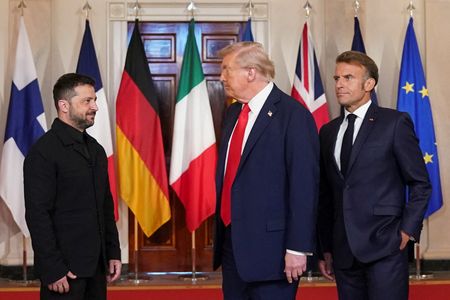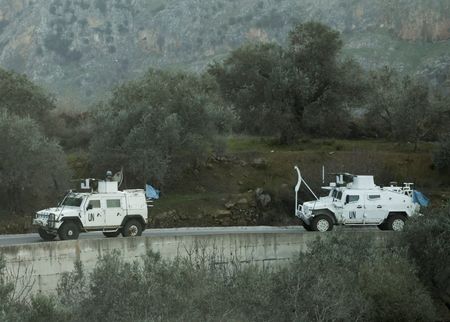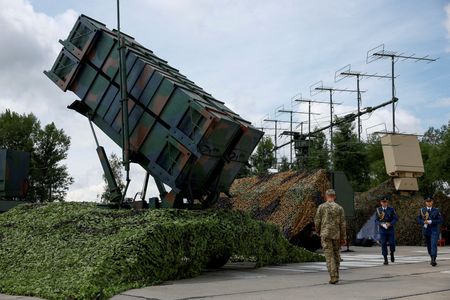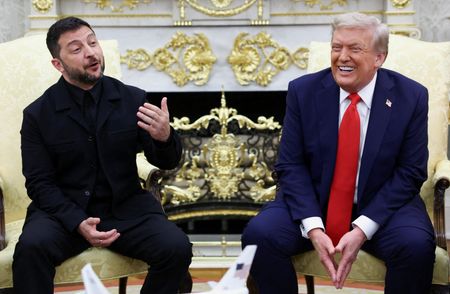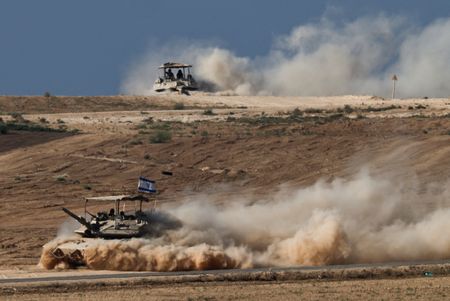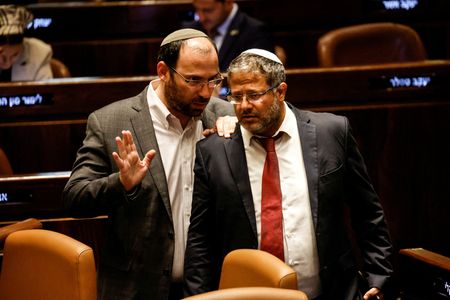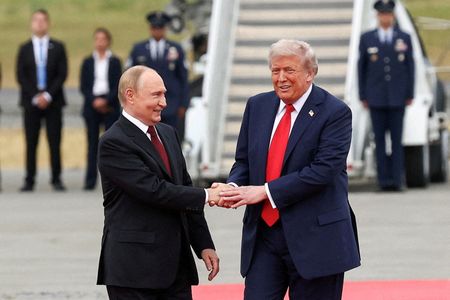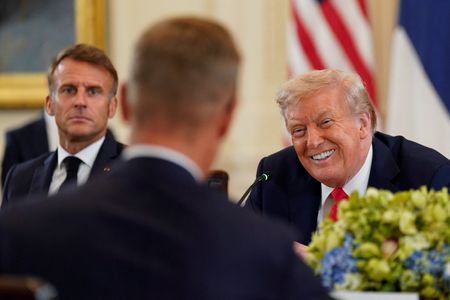By Federico Maccioni and Jana Choukeir
DUBAI (Reuters) -Abu Dhabi’s Etihad Airways is not seeing any effects from the turmoil caused by U.S. President Donald Trump’s tariff policies, its CEO Antonoaldo Neves told Reuters on Monday, while adding it was too early to fully gauge the impact of the levies.
Trump’s announcement of sweeping tariffs on dozens of U.S. trading partners this month – and then his pausing of most of them – created widespread market uncertainty and raised fears of a global economic downturn.
Neves said Etihad had recorded strong seat occupancy levels in recent weeks despite the trade tensions, and that the volatility could even create opportunities in some instances.
He expects more Europeans, for example, to take advantage of the euro’s recent gains against the dollar and the Gulf region’s dollar-pegged currencies to travel.
“It means that the euro now is stronger when you compare it to the Middle Eastern currency … So I expect to see more Europeans coming,” Neves said on the sidelines of the Arabian Travel Market fair in Dubai.
Neves’ comments echo Gulf airline Riyadh Air, which said earlier on Monday that global economic uncertainty had not reduced demand for travel to the Saudi capital.
If tariff-induced turmoil does impact passenger numbers, Neves said Etihad, which has a fleet of around 100 aircraft, had a contingency plan and could rely on its flexibility.
“About 60% of our planes are unencumbered, so they’re all fully paid for. If I get a crisis one day, I park planes … and save 75% of the cost,” he said.
At a press conference earlier on Monday, Neves said Etihad planned to add 20 to 22 new planes this year, as it aims to expand its fleet to more than 170 planes by 2030 and boost Abu Dhabi’s economic diversification strategy.
The UAE’s capital is investing heavily in sectors like tourism to cut its dependence on oil revenues, and in 2023 it launched a new terminal at Zayed International Airport that tripled the hub’s annual capacity to 45 million passengers.
Etihad, which is owned by Abu Dhabi’s $225 billion wealth fund ADQ, has been through a multi-year restructuring and management shake-up, but has expanded under Neves.
He said that 10 of this year’s new aircraft would be Airbus A321LRs, which the carrier launched on Monday and will start operating in August. The remainder include six Airbus A350s and four Boeing 787s.
Airlines in recent years have been plagued by delayed plane deliveries as manufacturers like Boeing and Airbus struggled with the pace of orders in a post-pandemic travel boom, among other issues.
Neves, who declined to give specifics on the order pipeline, said he was not happy with the delays but that they were not compromising the airline’s growth plans.
Etihad is always in talks with planemakers, he said, when asked whether the carrier could be interested in acquiring some of the dozens of planes that Boeing is looking to resell after they were locked out of China due to tariffs.
(Reporting by Jana Choukeir and Federico Maccioni. Editing by Kirsten Donovan, Joe Bavier and Mark Potter)

